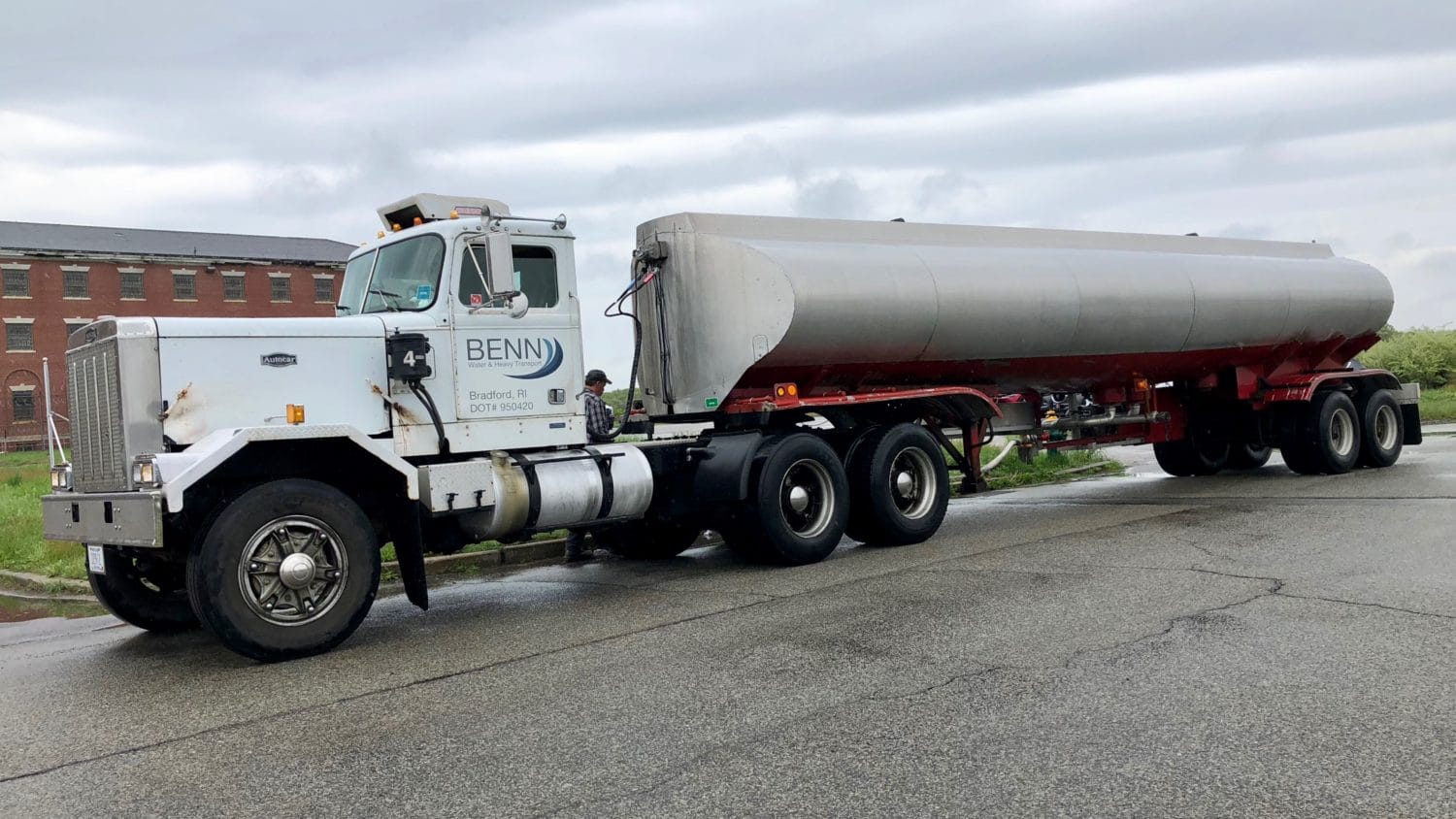Challenge to Invenergy’s water deal heats up in Superior Court
“[F]rankly, we don’t really care. Why should we? If you turn on a spigot, the water goes into a truck, we don’t care whether it goes into a truck, it goes into a bottle, what it goes into.” Conservation Law Foundation (CLF) filed its Memorandum of Law opposing Invenergy’s and Johnston’s Motion for Summary Judgment in the Rhode Island Superior
August 2, 2018, 12:01 pm
By Steve Ahlquist
“[F]rankly, we don’t really care. Why should we? If you turn on a spigot, the water goes into a truck, we don’t care whether it goes into a truck, it goes into a bottle, what it goes into.”
Conservation Law Foundation (CLF) filed its Memorandum of Law opposing Invenergy’s and Johnston’s Motion for Summary Judgment in the Rhode Island Superior Court. In January 2017, Invenergy signed a contract with the Town of Johnston to secure the water needed to cool the turbines of its proposed $1 billion fracked gas and diesel oil burning power plant aimed at the pristine forests of northwest Rhode Island.
The plan is for Johnston to allow Benn Water to fill its tankers in Johnston and transport the water by truck to Burrillville. Johnston buys its water from Providence Water Supply Board, which gets its water from Scituate Reservoir.
In March 2017, CLF and the Town of Burrillville sued both Invenergy and the Town of Johnston, saying that the water contract is illegal. Defendants Invenergy and the Town of Johnston previously filed motions to have the Superior Court dismiss the lawsuit brought by CLF and Burrillville, and Judge Michael Silverstein rejected those motions to dismiss.
CLF’s memorandum is divided into two main sections. In Section I (on pages 2-15) CLF shows why a 1915 law governing the Scituate Reservoir and water sales by the Providence Water Supply Board mean that the water contract between Johnston and Invenergy is illegal. In Sections II through VII (pages 15-26), CLF addresses, one by one, the arguments made by Invenergy and Johnston and shows why those arguments are wrong.
In their previous filings, both Invenergy and the Town of Johnston claim that there are no legal restrictions whatever on Johnston’s ability to re-sell water to Invenergy.
“[T]his is something we do every day. We sell water at retail to commercial and industrial users … That’s about as vanilla or ordinary as you can get … [F]rankly, we don’t really care,” said William Conley Jr, lawyer for the Town of Johnston, in open court, on May 31, 2017. “Why should we? If you turn on a spigot, the water goes into a truck, we don’t care whether it goes into a truck, it goes into a bottle, what it goes into. The spigot is in the town of Johnston and they turn it on. We bill it. We bill them for it. And that’s the end of the process for us.”
Conley is also a Rhode Island State Senator representing Senate District 18 in East Providence.
CLF Senior Attorney Jerry Elmer says Conley’s view is absurd.
“If the interpretation of the 1915 Act urged upon this Court by Johnston’s counsel were correct, then it would be an ‘ordinary municipal’ use to turn on the spigot in Johnston; fill a truck with water; drive the truck to Cape Canaveral, Florida; put the water onto to a rocket; launch the rocket to Mars; and build an artificial lake on Mars with Johnston water from the Scituate Reservoir,” writes Elmer. “Such an interpretation would be absurd…”
Oral argument on the Motion for Summary Judgment will be held on Monday, August 20, at 9:30 AM, in Judge Michael Silverstein’s courtroom in the Licht Courthouse, 250 Benefit Street (3rd floor). The hearing is open to the public.
Uprise RI is entirely supported by donations and advertising. Every little bit helps:






